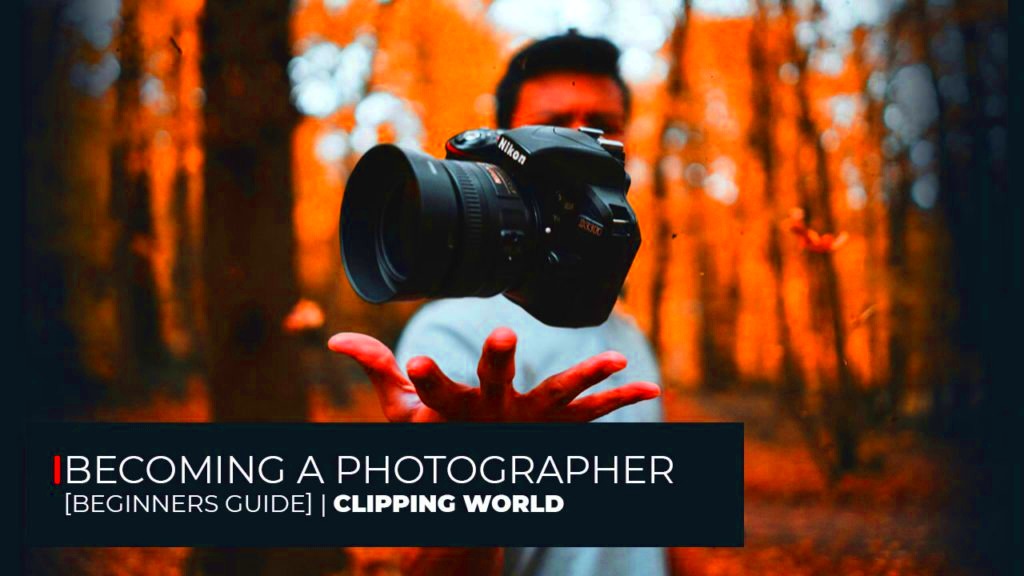For aspiring photographers, landing a gig with
Getty Images is often seen as a dream come true. It embodies the fusion of creativity and acknowledgment in the industry. As a photographer you have the opportunity to showcase your distinct viewpoint to the world while tapping into an extensive client network.I vividly recall the thrill I experienced when I initially considered collaborating with such a prestigious platform. It felt like unlocking a realm of opportunities. If you have a love for photography and are keen to have your work recognized on an international level
Getty Images might just be the ideal path for you.
Understanding Getty Images and Its Requirements
 Getty Images
Getty Images stands out as one of the top stock photography agencies in the world. They provide top notch visuals to a wide range of clients including publishers and marketing firms. Its essential for any up and coming photographer to grasp their needs and preferences.
- Quality Standards: Getty Images looks for high-resolution images with exceptional clarity. They value technical proficiency and artistic quality.
- Content Types: From editorial to creative shots, Getty Images requires a variety of content. You should be prepared to produce diverse work that meets different needs.
- Model Releases: If your photos include people, you need signed model releases to ensure that your work is legally compliant.
- Technical Specifications: Familiarize yourself with their format, size, and metadata requirements to avoid rejection.
Grasping these aspects will guide you in the direction. Its not solely about capturing images but also adhering to certain criteria that resonate with Gettys esteemed image.
Getting Started: Creating a Strong Portfolio

Building a portfolio is crucial if you want to catch the attention of
Getty Images. It should highlight your top pieces and showcase your distinct style and versatility. Here are some tips to help you create an impressive portfolio.
- Select Your Best Work: Choose images that highlight your strengths. Quality over quantity is key here. Each photo should add value to your portfolio.
- Organize Your Work: Group similar styles or themes together. This makes it easier for reviewers to understand your range and focus.
- Include a Variety: A well-rounded portfolio should include different types of shots. From portraits to landscapes, showing diversity can make your portfolio stand out.
- Keep It Updated: Regularly update your portfolio with new work. This shows that you’re active and evolving as a photographer.
Consider your portfolio a unique exhibition of your artistic path. Its a platform to share your imaginative voyage and allow others to admire your perspective. When I put together my portfolio I experienced a blend of excitement and apprehension. However its important to keep in mind that every accomplished photographer had their beginnings. Embrace the journey and let your enthusiasm radiate in your creations.
Submitting Your Work to Getty Images
Sending your creations to
Getty Images is like getting ready for an exciting journey. Its a mix of thrill and a hint of anxiousness. I remember when I sent in my pictures for the first time it felt like I was unlocking doors to possibilities not knowing what awaited me. But no need to fret; with some planning you can make this experience a breeze.
Here’s a straightforward set of instructions to assist you in your submission.- Registration: First, you need to sign up as a contributor on the Getty Images website. Complete the registration process by providing your details and agreeing to their terms and conditions.
- Upload Your Images: Once registered, you can start uploading your images. Ensure they meet Getty’s technical specifications, including resolution and format. It’s a good idea to review their guidelines before uploading to avoid any issues.
- Keywording and Metadata: Adding accurate keywords and metadata is crucial. This helps your images get discovered by potential buyers. Be descriptive but precise; think about what terms people might use to search for your photos.
- Review Process: After submission, your images will undergo a review process. Getty’s team will assess the quality and relevance of your work. This can take some time, so patience is key.
Consider this submission as a way to present your skills to a wider crowd. Every accomplished photographer has gone through this phase and with every entry you move closer to achieving your goals.
What to Expect After Submission
Once you click that submit button it’s completely natural to feel a bit of excitement. I recall the anticipation I felt while waiting for feedback on my initial submission, curious to know if my work would be approved. Here’s what usually unfolds, afterward;
- Review Time: Getty Images will review your submission to ensure it meets their quality standards. This process usually takes a few weeks. Use this time to work on new projects or improve your skills.
- Feedback: If your images are accepted, you’ll receive a notification. If not, Getty might provide feedback on what needs improvement. Take this as an opportunity to learn and refine your craft.
- Approval: Once approved, your images will be added to the Getty Images library. They’ll be available for licensing, and you’ll start earning royalties when someone purchases them.
- Performance Tracking: Getty provides tools to track the performance of your images. Keep an eye on which images are popular and adjust your strategy accordingly.
Here, the focus is on the importance of being patient and persistent. Each stage of this journey offers an opportunity for growth and through every submission you refine your abilities and establish your credibility.
Best Practices for Maximizing Your Success
In order to differentiate yourself in the cutthroat realm of stock photography it takes more than just stunning visuals; a well thought out plan is essential. Through my experiences I’ve picked up some tips that can assist you in maximizing your potential when collaborating with
Getty Images.
- Stay Consistent: Consistency in quality and style can help build a recognizable brand. Regularly upload new content to keep your portfolio fresh and engaging.
- Analyze Trends: Pay attention to trends in stock photography. What’s popular now? What are buyers looking for? Adapting to these trends can increase your chances of success.
- Engage with the Community: Join forums or groups of Getty contributors. Sharing experiences and tips with fellow photographers can provide valuable insights and support.
- Optimize Keywords: Use relevant and specific keywords for your images. This makes it easier for buyers to find your work amidst the vast library of images.
- Quality over Quantity: Focus on producing high-quality images rather than just increasing the number of uploads. Each photo should meet Getty’s high standards.
Keep in mind that success is not something that happens instantly. It’s a process that involves learning and evolving along the way. View every obstacle as a chance to progress towards your aspirations. Your enthusiasm and commitment will be evident in your efforts and lead to amazing possibilities.
Common Challenges and How to Overcome Them
Collaborating with Getty Images can be an exciting adventure, but it comes with its fair share of obstacles. Through my personal encounters and discussions with other photographers, I’ve compiled a list of challenges along with some helpful suggestions to overcome them.
- High Standards: Getty Images maintains rigorous quality standards, which can be daunting. Overcome this by continually improving your technical skills and investing in quality equipment. Regularly review their guidelines to ensure your submissions meet their expectations.
- Rejection: Rejections are part of the process and can be disheartening. Instead of seeing them as setbacks, use them as learning opportunities. Analyze any feedback provided and refine your approach. Each rejection is a chance to grow and improve.
- Competition: With countless photographers submitting their work, standing out can be tough. Focus on developing a unique style and creating content that resonates with current trends. Don’t be afraid to experiment and showcase what makes your perspective distinct.
- Metadata and Keywords: Crafting the right keywords and metadata can be tricky. Take the time to understand what buyers are searching for and use this insight to enhance your image descriptions. Tools and keyword research can make this task easier.
- Time Management: Balancing photography with other responsibilities can be challenging. Create a schedule that allows you to consistently produce and submit work without feeling overwhelmed. Small, regular efforts often lead to big results.
Confronting these difficulties directly with resolve and an optimistic mindset has the power to transform hurdles into opportunities. Every obstacle you conquer will inch you nearer to realizing your aspirations and leaving your imprint in the realm of stock photography.
Key Benefits of Working with Getty Images
Collaborating with Getty Images comes with a range of benefits, most of which I have personally witnessed. The platform provides a plethora of possibilities for photographers and here are the reasons why it can be highly fulfilling.
- Global Exposure: Getty Images has a vast network of clients worldwide. Your work gets seen by major publishers, advertisers, and media outlets, significantly increasing your visibility.
- Financial Rewards: Getty Images offers a chance to earn royalties from your work. Each time someone licenses one of your images, you receive a share of the revenue. This can add up over time, providing a steady income stream.
- Professional Growth: Working with a renowned platform like Getty Images can enhance your professional credibility. It can also lead to valuable connections and opportunities in the industry, helping you to grow as a photographer.
- Exposure to Trends: Getty Images provides insights into current trends and market demands. This information can help you stay ahead of the curve and tailor your work to what’s in demand.
- Feedback and Support: The review process offers constructive feedback that can help you improve your skills. Additionally, Getty’s support team is there to assist with any issues or queries, making your experience smoother.
The perks of this collaboration come together to provide an environment that nurtures your imagination and allows your efforts to be acknowledged. Seize the chances that come your way and maximize this alliance to build a rewarding journey in photography.
FAQ
Q: How long does it take for Getty Images to review my submission?
The evaluation of submissions may span several weeks. Getty Images meticulously reviews every entry to ensure it aligns with their criteria. It’s wise to continue pursuing projects during this period and not let anything dampen your spirits.
Q: What should I do if my images are rejected?
If your pictures get turned down take a close look at the feedback you receive. Use it to improve your work and fix any problems. Keep in mind that rejection is just a step in the journey and can teach you valuable lessons.
Q: How can I make my images more likely to be accepted?
To boost your likelihood of being accepted make sure your photos are top notch in quality and align with Gettys standards. Focus on the relevance of your material employ precise keywords and metadata and present an assortment of creations.
Q: Can I submit the same images to other stock photography sites?
While you can share the same pictures across different platforms it's crucial to check the exclusivity terms of each one. Certain platforms may have exclusivity clauses which prevent you from using the same images in other places.
Q: What types of images are most in demand?
Stock photo trends can change over time, but commonly sought after themes are lifestyle, business, technology and inclusivity. Stay updated on trends and adapt your creations to align with market preferences.
Conclusion
Starting a journey with Getty Images can be an adventure filled with both excitement and obstacles. From the moment you begin curating your collection to the exhilaration of witnessing your creations showcased in their extensive library every step brings its own rewards and valuable lessons. Reflecting on my personal journey I remember the blend of nerves and anticipation when I submitted my photos for the first time. It’s a process that requires patience, ingenuity and an openness to learning from feedback.Embrace each challenge as a chance to evolve and keep in mind that every accomplished photographer began exactly where you are today. Remain committed, continuously hone your skills and allow your passion to steer you. With determination and a genuine affection for your craft you’ll carve out your niche and leave a lasting impression in the realm of stock photography.
 Getty Images stands out as one of the top stock photography agencies in the world. They provide top notch visuals to a wide range of clients including publishers and marketing firms. Its essential for any up and coming photographer to grasp their needs and preferences.
Getty Images stands out as one of the top stock photography agencies in the world. They provide top notch visuals to a wide range of clients including publishers and marketing firms. Its essential for any up and coming photographer to grasp their needs and preferences. Building a portfolio is crucial if you want to catch the attention of Getty Images. It should highlight your top pieces and showcase your distinct style and versatility. Here are some tips to help you create an impressive portfolio.
Building a portfolio is crucial if you want to catch the attention of Getty Images. It should highlight your top pieces and showcase your distinct style and versatility. Here are some tips to help you create an impressive portfolio.
 admin
admin








